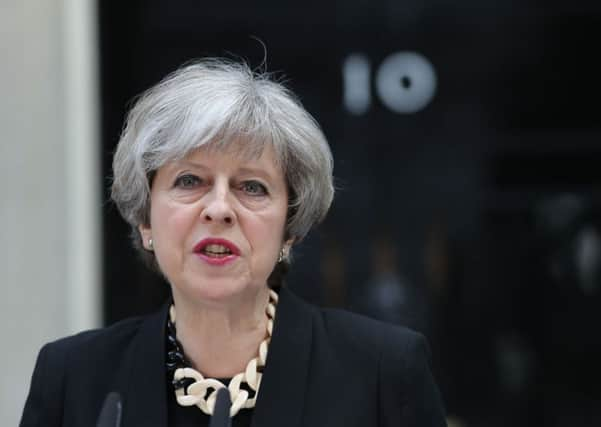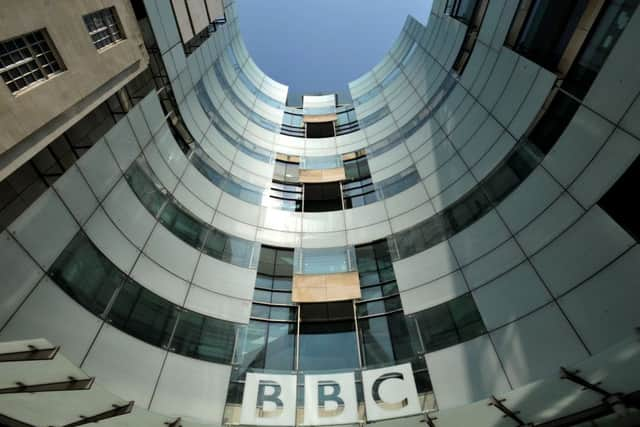Ben Lowry: We should pay our PMs far more and make that the top level for public pay


It is often said that A or B or X or Y “earns more than the prime minister”.
The PM’s salary ought to be a benchmark for leading salaries in the public sphere.
Advertisement
Hide AdAdvertisement
Hide AdThe prime minister is the most important full-time paid servant of the state. We should worry if anyone in the public sector or another publicly funded arena earns more than the inhabitant of 10 Downing Street.


But it has become a meaningless comparison because the prime minister’s pay is inadequate for such a crucial post on which the wellbeing of the nation depends.
The PM is entitled to earn £150,000 a year, although many people who have held the post including Margaret Thatcher have taken less than the full amount to which they are entitled. Gordon Brown actually had the PM’s salary cut.
For most of us the PM’s current income is a huge amount of money (it is many times more than my own salary) but for someone with the immense responsibilities of the premiership it is modest remuneration.
Advertisement
Hide AdAdvertisement
Hide AdThe salary of the PM has fallen behind many other important, but lesser, vital posts in the state.


A large range of people, from leading doctors on the NHS to top generals to high court judges to many other vital public positions earn more than £150k, all funded by the taxpayer.
Sometimes the relatively low pay of the prime minister is justified on the grounds that the position has other perks, such as its status and the right to occupancy of 10 Downing Street and the use of Chequers country estate.
But if that is so then we should ditch the comparison with other jobs that might pay more but which have nothing like the same level of prestige or perks.
I think there is a better way to resolve this anomaly.
Advertisement
Hide AdAdvertisement
Hide AdThere should be a simple overhaul of public pay, that begins with a massive hike in the prime minister’s salary.
I would raise it to perhaps three times higher, let us say £450,000.
Then it should become the informal upper limit for all key public sector positions or positions that are largely funded by the public.
The director general of the BBC, the governor of the Bank of England, the head of the civil service, the highest paid chief constable, the lord chief justice – they should all earn less than the prime minister, even if in some cases only slightly less (say £430,000 for the most important of those positions).
Advertisement
Hide AdAdvertisement
Hide AdThis would mean a pay cut for, among others, the current governor of the Bank of England. However, these posts typically attract candidates of integrity and ability who could earn far more in the private sector but who know that the highest levels of public service command unrivalled levels of respect and influence – respect that even billionaires will never match on the basis of wealth alone.
If PMs got such a big pay rise, incumbents would still be free to turn it down if they thought the sum excessive.
But the nominal amount to which they would be entitled would the become a reasonable informal upper limit to publicly funded earnings.
If anyone in a position that is mostly (or even significantly) funded by the taxpayer was earning more than the newly raised salary of the PM, we could then query why they are so highly valued.
Advertisement
Hide AdAdvertisement
Hide AdThis would include the council chief executives who earn more than £500,000, university vice chancellors and barristers who average vast annual earnings from legal aid.
One of the few areas in which I suspect it is fair to pay people more than even a PM earning the sort of enhanced £450k sum that I suggest is the key top celebrity posts at the BBC.
Personally, I have minimal interest in Chris Evans, Gary Linker and Graham Norton but they are operating successfully in a world in which such pay is colossal.
The principal of earning less but enjoying the prestige of working for a state broadcaster as world famous as the BBC should still apply. Even so celebrity salaries can perhaps be justified as above even an increased PM’s.
Advertisement
Hide AdAdvertisement
Hide AdSome of the salaries announced this week were not at all excessive. The political editor Laura Kuennsberg earns £200,000 to £250,000, which is not a penny too much for such a pivotal and gruelling journalistic post.
As to Stephen Nolan, first to declare an interest: I have been on his radio or TV shows about a dozen times.
However, I think he is key to his shows’ success and that they are only a shadow of the norm when he is absent.
He has also got less populist. Among the many times when I recall sizzling in the past was once when he sided with a politician who advocated more NHS funding (ie the easy view). Back then Nolan would give people who argued the difficult position (ie defending parking ticket wardens) a hard time and populist critics an easy ride.
I think he doesn’t do that now.
• Ben Lowry (@BenLowry2) is News Letter deputy editor